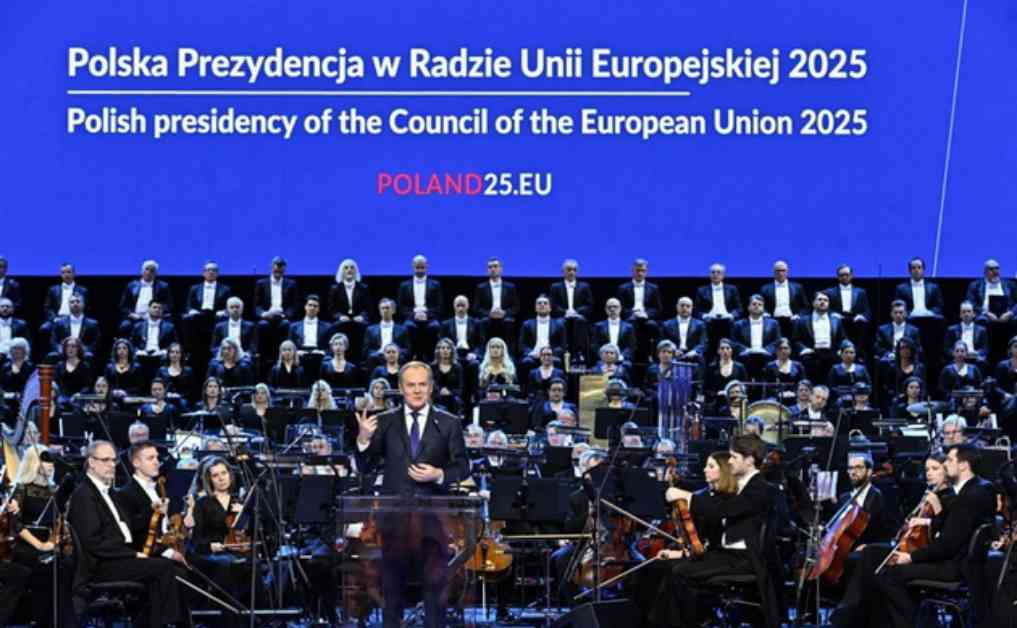Prime Minister Donald Tusk expressed optimism about Poland’s EU Presidency, despite a presidential snub from Andrzej Duda. Tusk emphasized the importance of courage and reason during the term, as Poland took over the EU presidency for the second time in its history. The official opening ceremony in Warsaw on Jan. 3 marked the beginning of this significant period, with key figures in attendance, including European Council President Antonio Costa. However, the absence of President Duda, who chose to go skiing instead, highlighted ongoing political tensions within the country.
President’s Absence
President Duda’s decision not to attend the gala sparked controversy, with conflicting accounts from officials about the invitation process. While State Secretary Magdalena Sobkowiak-Czarnecka expressed disappointment at Duda’s absence, head of the president’s office Małgorzata Paprocka cited organizational lapses as the reason for the President’s decision. This rift between the government and the opposition president underscores the complex political landscape in Poland.
Political Fallout
The strained relationship between Tusk’s government and Duda has led to sharp criticism from various political figures. PiS MP Radosław Fogiel labeled Tusk as an “internet troll,” while Foreign Minister Radosław Sikorski described Duda’s actions as “embarrassing” and “disingenuous.” Despite these tensions, the conflict is unlikely to derail Poland’s EU presidency, as the president’s influence over EU matters is limited.
EU Priorities
During its presidency, Poland aims to address key EU priorities, including security, migration, energy, agriculture, and trade. Tusk emphasized the importance of strengthening Europe’s security policy in the face of global challenges. Additionally, Poland seeks to reduce the EU’s dependence on Russian energy sources and enhance agricultural sustainability practices. While the presidency’s agenda appears robust, some experts note the absence of specific climate policy goals, highlighting potential missed opportunities for environmental initiatives.
Leadership Role
Political marketing expert Mirosław Oczkoś views Poland’s EU presidency as an opportunity for the country to emerge as a prominent political leader in Europe. With Germany facing internal challenges and other European leaders navigating complex geopolitical issues, Poland has a chance to assert its influence on the European stage. Successful navigation of key issues, such as migration and security, could bolster Tusk’s government and position Poland as a key player in shaping EU policies.
In conclusion, Poland’s EU presidency under Tusk’s leadership holds promise and challenges in equal measure. As the country navigates complex political dynamics and seeks to address critical EU priorities, the success of this term could significantly impact Poland’s standing in Europe and the broader international community.

















